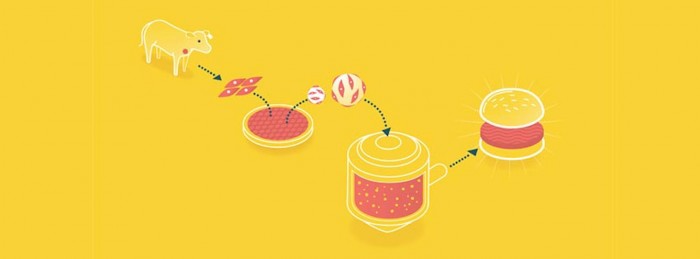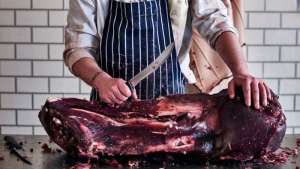From the Series

Lab-grown meat is a very near-future reality for the mass market and offers a virtually animal-free food chain that could replace industrial livestock farming. Using vastly less space, energy and money, the farmer of the future could be wearing a white coat. More than a third of land that isn’t covered by ice is used to farm livestock. And all that farming has huge impact on the environment, with livestock accounting for more greenhouse gas than cars and planes combined. But what if we didn’t need animals in order to serve up meat and animal products?
PhD student Abi Aspen Glencross is a cell farmer, working in the fields of tissue engineering and biotechnology and focussing on how you can grow food from cells rather than from animals or plants. Her work is motivated by a desire to think about the systems that surround food and how we can more ethically and environmentally feed the world's growing population. Her research at King’s College London is funded by a US-based charity called New Harvest.
As part of the Future Farm Lab, Glencross was involved in an exhibition in September 2016 at Somerset House, London that asks viewers to think about food utopia, starting with the full english breakfast. With a good combination of protein, carbohydrate and fats, and ingredients from animal, vegetable and grain, the full english breakfast holds a strong place in the hearts (and arteries) of the British and the world. But it actually presents a rather dystopian reality around food. Consistent throughout the year, the full english neither responds to nor reflects the seasons or availability of the different components – indicating how removed from the natural order modern food production has become.
A real food utopia should involve food systems that are much more adaptive and closely aligned to the environment. At the Utopia Lab, the Future Farm Lab team imagine what the full english could look like if various parts of it were replaced with more sustainable options.







